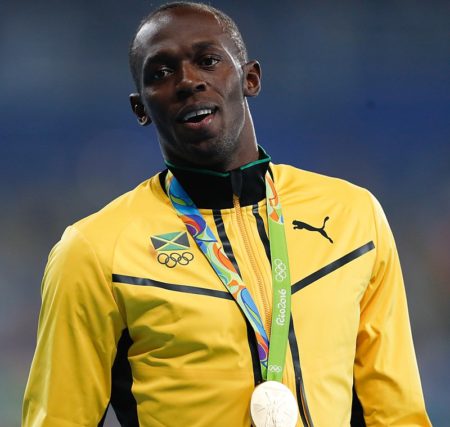What’s in a name?
by How It Works Team · 01/03/2019

The biology, psychology and sociology of your name may be influencing you more than you realise
Humans have an innate preference for naming shapes
If you look at the characters above, which would you give the name ‘Kiki’ and which one would you name ‘Bouba’? Chances are you answered the same as the majority of other people reading this magazine. This is because the brain attaches abstract meanings to shapes, a phenomenon that appears consistent across languages. Scientists think the reason we do this is because the rounded shape our mouth makes when we pronounce Bouba is associated with similar shapes, while we form angular shapes with our mouths when we pronounce Kiki. Research suggests that we associate names like Rose with softer facial features, whereas we might associate Max with more angular features.

It might not be a coincidence if you know a Mrs Read who is a librarian
Usain Bolt set a world record of 9.58 seconds for the 100-metre sprint at the Berlin 2009 World Championships. Even his name sounds fast – Bolt. This isn’t the first time we have seen a pattern between a career and an individual’s name. Other examples include Sue Yoo, an American lawyer; Dr Michael Docktor of Harvard Medical School; and Scott Speed, a NASCAR racing driver. Researchers think this may be more than humorous coincidence. It’s thought that someone’s self-image could be determined by their name, or their name might cause expectations among their peers that they take on board. There could also be a genetic explanation; names originating from a career, such as Fisher and Butcher, may be passed on along with the corresponding genes that make their owners suitable for the job.

We say men and women’s names differently
Researchers at Columbia University, US, have reported that female and male names are phonetically different. Place your fingers on your throat. Can you feel the difference when you say ‘Sophie’ compared to ‘Thomas’? Male names are generally pronounced as harder-voiced sounds, while female names are softer, unvoiced sounds with less vocal cord vibration. It’s thought that these differences are the result of gender stereotyping.

Middle initials matter
Dr Wijnand A P van Tilburg and Dr Eric R Igou conducted studies at the University of Limerick to investigate if middle names matter. In a series of experiments students from the university were given extracts from academic texts. Some were given texts written by an author who was listed without a middle name, while others were given pieces penned by an author who had one or more middle names. The latter was interpreted consistently as more prestigious and of a higher standard.

People with easier-to-pronounce names are seen more positively
Experiments that analyse the results of hypothetical elections suggest that we react more positively to names that are easy to pronounce. Studies have also found that lawyers in the US with easy-to-say names tend to hold higher positions. Interestingly, the results were not affected by how familiar a name was to the individual judging the candidate, nor the perceived ethnicity of the surname. This phenomenon stems from the human brain’s preference for things we find easy to understand. Reading these names causes feelings of positivity, which means we judge people more kindly. This means surnames such as Evans, Ali or Depp tend to be judged more positively than names like Schwarzenegger, LaBeouf or Cumberbatch.

This article was originally published in How It Works issue 112, written by Charlie Evans
For more science and technology articles, pick up the latest copy of How It Works from all good retailers or from our website now. If you have a tablet or smartphone, you can also download the digital version onto your iOS or Android device. To make sure you never miss an issue of How It Works magazine, subscribe today!




